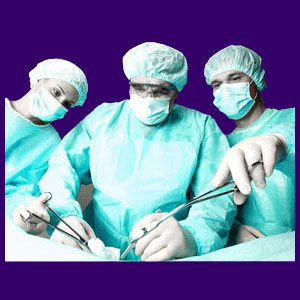
A herniated disc specialist is a healthcare provider who focuses on the diagnosis and treatment of intervertebral disc pathologies. Medical doctors are generally the most common specialists, but some chiropractors and therapists also concentrate on treating this specific spinal condition.
Specialists are often consulted when patients report back or neck pain to their primary care providers and receive a referral to seek expert care. It is a sad fact that the treatments offered by most specialists are not effective in curing the symptoms, although some of these therapies certainly do address the structural evidence presented by the herniation itself. To put it simply, through therapy, the disc may be fixed, but the pain usually remains.
This critical narrative details the often disappointing process of seeking specialized care for intervertebral herniations within the medical and complementary medical sectors.
Herniated Disc Specialist Evaluation
Ok, so you found out that you have one or more herniated discs. You were probably referred to a back or neck pain expert who will decide on the best course of action for your diagnosed spinal condition. Your doctors have probably already tried a few conservative treatments, including physical therapy, bed rest and some powerful pain management drugs. Nothing seemed to really help you. Your doctor now decides it is time to escalate the care offered to help you end your disc pain once and for all. The herniated disc specialist suggests one of several possible treatment modalities:
Epidural injections followed by surgery.
More conservative treatments, then surgery.
Immediate back surgery.
What do all these common scenarios have in common?
That’s right… surgery.
Surgical correction is the most common form of specialized herniated disc care. These disc surgeries are rarely actually necessary and can leave the patient permanently limited in their physical abilities. Research statistics clearly point to the horrific facts. Disc procedures are the least effective of all spinal surgeries for the permanent resolution of symptoms, regardless of how effective they might be at actually changing the disc anatomy. This means that even when they are successful from a medical standpoint, they still usually fail to provide a cure for herniated discs.
It is vital to know that when doctors discuss the success rate for a particular procedure, they are talking about achieving the structural goal, not the pain relieving efficacy. For example, if the spine actually fuses during a spinal fusion operation, then it is deemed a success. The fact that the patient may be in terrible agony and can not walk anymore is irreverent.
How can this be called a success?
Surgery by a Disc Specialist
Most patients with persistent disc pain will eventually be recommended to undergo surgical correction of their disc abnormality. These operations vary in severity and invasiveness, but none are pleasant and all can have lasting permanent effects of your health and mobility. Avoiding spine surgery is always a much preferred path for wise patients.
Discectomy is the most utilized type of procedure and offers acceptable results. However, even when completely successful, a majority of patients will suffer a symptomatic re-herniation at the same location.
Disc replacement surgery is a newer and more enlightened option for some disc issues. However, complications are commonplace and long-term results are not yet available for many disc prosthetics.
Spinal fusion is a barbaric treatment which goes against the very design of the flexible spine. There is absolutely no evidence that eliminating vertebral level movement will cure pain for any spinal pathology. There is plenty of evidence that spinal fusion is the most unsuccessful and complication-ridden of all operations and almost always escalates the degenerative processes, forcing additional fusions over time. Scary.
Herniated Disc Specialist Alternative Treatments
Spinal decompression has been a hot topic among disc specialists. Systems like the DRX9000 and Vax-D have shown good results for the permanent non-surgical resolution of common herniated disc pain. I would strongly suggest trying these noninvasive methods before even considering surgery. I have personally toured several facilities offering decompression therapy and was very impressed by the systems and care providers.
However, successful treatment relies 100% on accurate diagnosis. In many cases, this is taken for granted; being that the disc is not the underlying causative mechanism for pain. Sure, decompression can successfully treat many discs, but if they are not the source of symptoms, then what is the point? Always be sure of the diagnosis before undergoing decompression therapy.
Herniated Disc Advisory
It is great to have such highly focused doctors working to help patients with such a common spinal condition. It is fantastic that these doctors have come up with 1001 different methods to treat disc related pain. It is terrific that most insurance pays the bills for all these treatments. However…
It is catastrophic that many symptoms are blamed on this common back pain scapegoat condition, when in reality the pain is due to an alternate physical or psychological source.
This is exactly what happened to me. I suffered with horrible disc related pain for 18 years. Every doctor and therapist I went to, including a few specialists, all blamed my pain on 2 herniated discs in my lower back. It took an alternate approach to discover that my pain was completely unrelated to these poor maligned discs.
Patients are strongly cautioned that although it is crucial to trust your doctor and abide by their advice, you must still be informed of the facts of your disc condition in order to see good treatment results. Misdiagnosis is rampant and many doctors make recommendations based exclusively on the potential economic benefit they will see from the suggested treatment.
I know it is difficult to know whom to trust, so you might have to get more than one opinion. There is certainly no harm in this, just to be sure.





